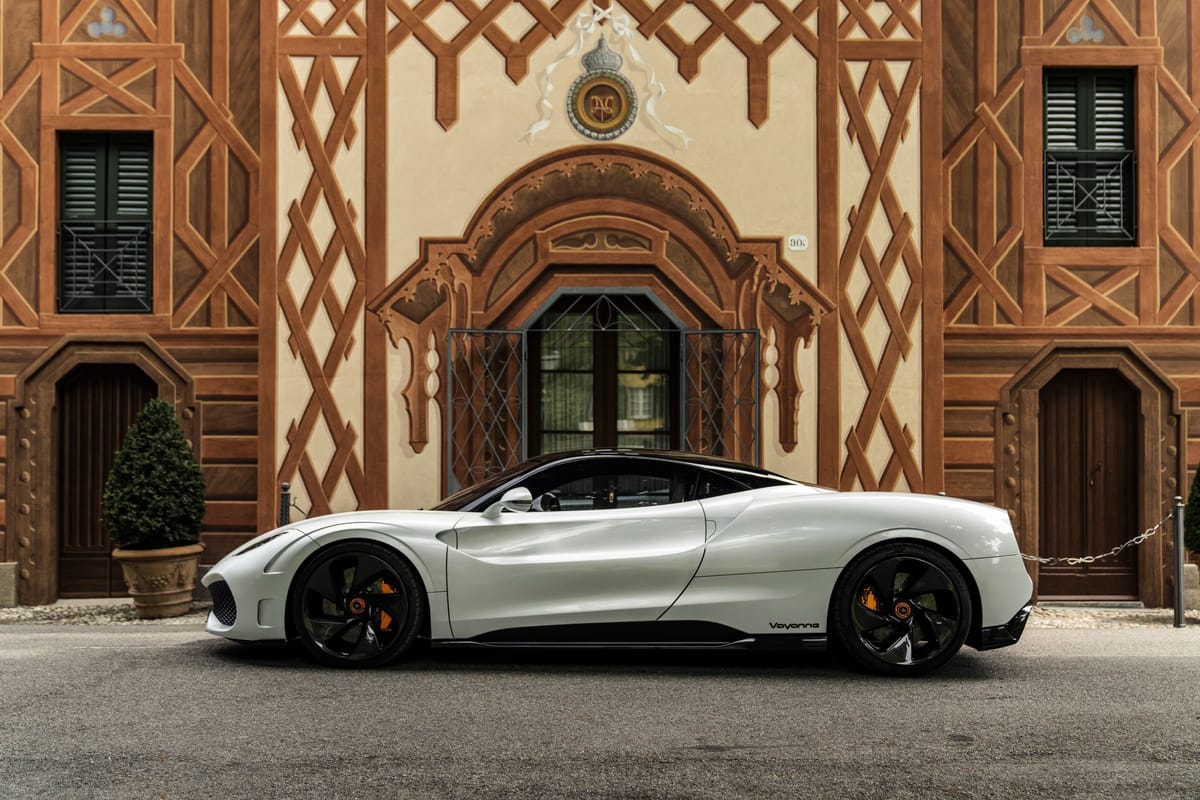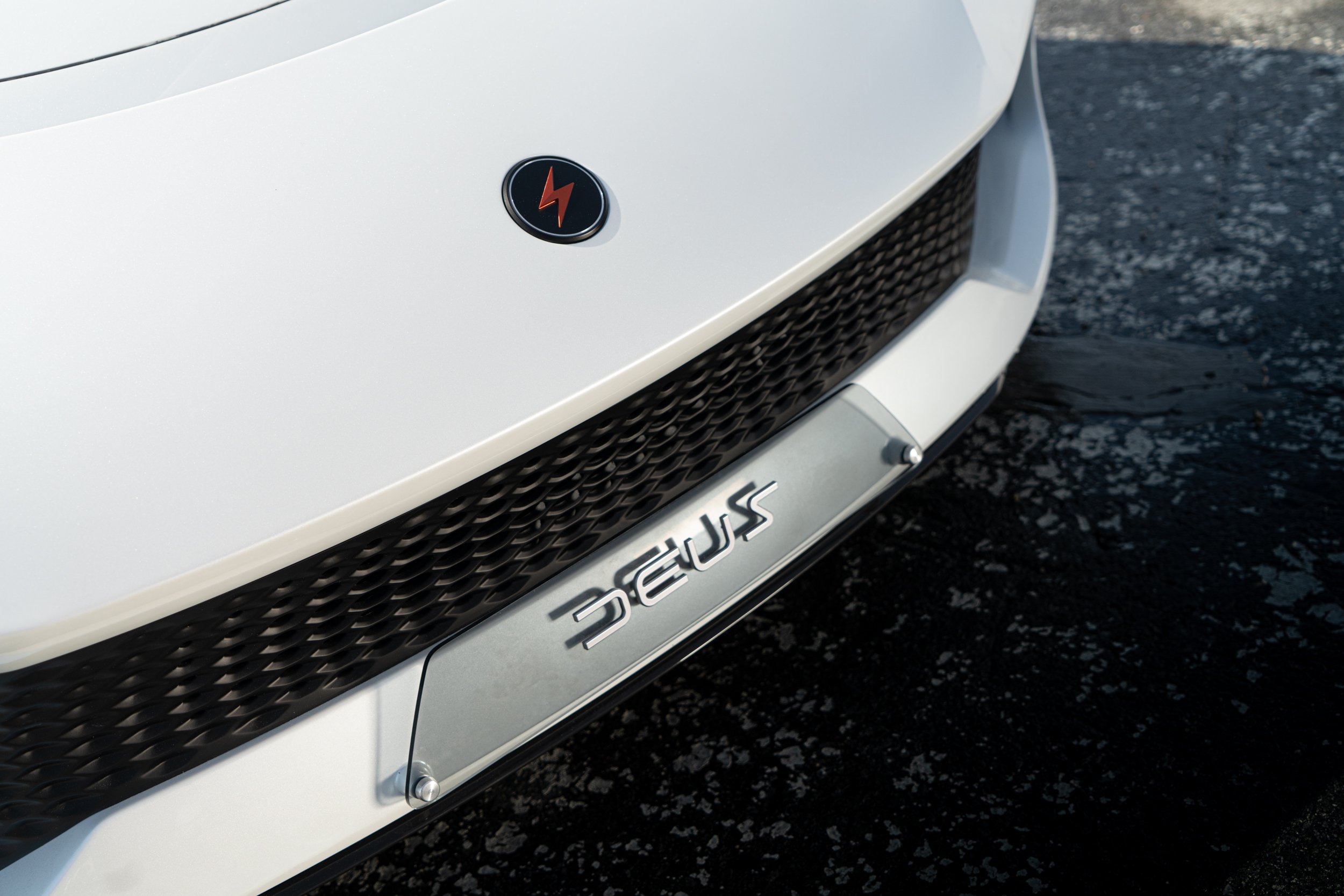
After two years on the shelf, the New York International Auto Show found itself back in the limelight in 2022. For 11 days in April, automakers from around the world were in New York City showcasing the next big thing coming out of their factories in the coming months and years. Despite all the major names in attendance, it was an unknown upstart from Austria that stood out from the rest. With its sleek curves, futuristic body and next-level technology, the DEUS-Vayanne didn’t come to New York to just take part. It came to take over.

In an exclusive interview, Adrian-Filip Butuca, founder and head of design for DEUS, said that even though his company is just a start-up, he wanted to aim for the top of the mountain when he decided to build an all-electric luxury hypercar.
“The hypercar is the pinnacle of automotive design, technology and performance,” Butuca says. “If you try something new, I think you should aim at the top.”
DEUS Automobiles didn’t open its doors until 2020, and the Vayanne is the company’s inaugural model. Its designers didn’t want it to just be another automobile in the ever-expanding EV market; Butuca and his colleagues wanted to do something completely different that would ensure it stood out from the pack.
To create such a vehicle, Deus joined forces with some of the top companies in their respective fields. That includes auto designer Giorgetto Giugiaro’s firm Italdesign and Formula 1’s Williams Advanced Engineering. Each Vayanne will be built in Italdesign’s facilities in Turin, Italy, with Williams Advanced Engineering on board to lead the application of its electrification technologies.
The collaboration of three brands gave each company the space to focus on what it does best, but also create the synergy needed to bring it all into one automobile that they hope will be the standard-bearer for luxury hypercars.
“It’s not only the hypercar market that is set to increase,” said Dyrr Ardash, head of strategic partnerships, Williams Advanced Engineering “But in general luxury and premium products are going to be in demand as well. I think having something unique in the marketplace is really positive.”
Almost everything about the Vayanne could be considered leveling up. That is especially true when it comes to the force it commands: According to officials, it has a top speed of 248 mph, making it comparable to the electric Rimac Nevera C Two, which tops out at 258.
With 2,243 horsepower, the Vayanne’s electric motor can get the 4,078-pound hypercar from 0 to 62 mph in 1.99 seconds. It dwarfs gas-powered models such as the Ferrari SF90 Stradale, the McLaren Speedtail, the Porsche 918 Spyder and the Lamborghini Aventador in terms of horsepower.
The Vayanne is also expected to be able to go 310 miles on a single charge from its lithium-ion battery. And speaking of speed, the ability to reach 80 percent of a full charge on its 85 kWh battery in just 20 minutes sets it apart from even some of the best mass-produced EVs.
While the electric power of the Vayanne is overwhelming, the look and design have a more seductive quality. From the shape of infinity loop grilles that evoke angel wings to the natural leather interior or even its dashboard’s Halo Infinity Mirror, it’s a car that’s meant to feel luxurious.
“At Deus, design is not merely about the looks, it is an integrated concept that reflects the marque’s main credo: to effortlessly combine exquisite design and functionality with cutting-edge technology in the EV hypercar segment,” says Butuca. “To showcase this harmony, we chose to stylize the Vayanne around the idea of symmetry and geometric alignment of its lines and design features.”
Owners won’t have to worry about seeing a duplicate of their car. A total of only 99 of this model will be produced, and no two Vayannes will look exactly the same. Clients will have the opportunity to customize the color, trim and optional equipment to keep their rides different from all others.
The first editions of the Vayanne are due to roll out to customers in 2025. Officials haven’t announced the cost, but the price tag is expected to top $2 million for the limited series.
After its debut in New York, DEUS toured Europe with stops in Italy, France and Germany. Even though the Vayanne is still a few years away from hitting the road, Butuca felt it was important to get their car out into the consumer consciousness now.
“It was very important for us to bring it out this year to show our commitment to the project and introduce the brand and its story to the people, the market and the car community,” Butuca says. “In this time frame through 2025, we will use it for customization activities and prototyping. It’s not dead time. We are working very hard to ensure that time frame is well put to work.”

